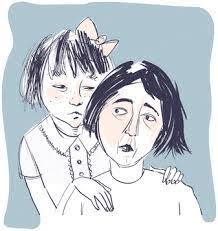
What does the word “boundary” mean to you? Are you like I was and saw boundaries as something that happened between nations. Heralded with flags, pomp and ceremony, something to fight for. In theory we know it is important to have personal boundaries, they are very much worth protecting, but do we actually know what they really are? The best way to set boundaries is to learn to say NO when people are trying to manipulate or force you into doing something that you don’t want to do and knowing that we are not obliged to take care of other adults just because they try to make you feel obliged to. We also know that some people have absolutely no regard for other people’s boundaries. It is relatively easy to erect a physical boundary it is much harder to set personal boundaries. This is an especially difficult task for people who have come from a narcissistic family of origin because all through their childhood they have been fed a message by one or both of their narcissistic parents that it “it doesn’t matter what you want, it is all about what I want and I will force you either physically or through bullying and terrorising you to put my needs and the needs of others (that I have chosen) before your own”. People who have endured a “relationship” or “relationships” with people with a narcissistic personality disorder don’t know or have lost sight of understanding what interpersonal boundaries are, because they have been so completely violated. There are a number of ways to erect boundaries and these include:
- Learning to say NO
- Deciding which behaviours you find acceptable and which you do not, draw the line and stick to it rigidly
- Make up some phrases that will help you to get out of a situation when the narcissist is trying to force you to do something for them that you don’t want to do, such as “I have got to go”, “we will have to agree to disagree”, “I am not going to tolerate or continue any conversation where you call me names”, “there is no point in shouting at me, it is not going to make me change my mind”
- Don’t be open with them, they will use that information against you at a later date
- Don’t explain yourself, they will only tell you why you are wrong to think the way you do
- Call them out when they are being abusive with comments like “I find it frustrating that you negate or invalidate everything that I say or feel” they will almost certainly deny that this is true but saying it is enough
- Boundary making is a constant effort (as it is with a small child) so comments like the one above can be used in future conversations if necessary
- Don’t let them change the subject if they do not like the direction the conversation is taking with comments like “that has absolutely nothing to do with what we are talking about right now”
- Make a plan of what you want to get out of the conversation and concede certain issues if necessary
The erecting and maintaining those boundaries are vital for moving forward and to prevent you from falling into the same trap again and again. So many of us have done so because it feels familiar, and as children we were indoctrinated that this familiar feeling was “love”, but that was a lie.
If you come from a narcissistic family of origin you may well have been punished for saying “no” to your parents, or if you did say “no” they just ignored you and did what they wanted anyway and forced you to go along with their plan, you might also be willing to do too much for others as a result of being punished as a child for non-compliance, so bending over backwards for others could be your norm and you might be “willing” to do that because it is less harrowing than your memory of narcissistic rages in the past from when you didn’t set out to “please” mummy or daddy.
Children from narcissistic families are often ridiculed for having wants and desires and so they don’t even know what they want themselves, this makes it very easy to manipulate, even by a relatively low spectrum narcissist.
Here are some simple questions to ask yourself in any given situation:
- How does it make me feel?
- Do I want to do it or do I feel I ought to do it?
- What is in it for me: good company, entertainment, something new to learn? Money?
- Would the person who is making this demand on me do something equivalent for me sometime?
- What is my relationship with this person like? Do I make all the effort or is it reciprocated?
- If I go to some trouble and spend time and money for this person are they genuinely grateful or, do they just take it and me for granted?
- Do they lavish fake praise on me in company but criticise me (or worse) when no one is around?
- Do they value my time, money, effort, expertise etc?
- Are they asking me to do something for them that they could easily do for themselves?
- Do they volunteer your time to other people and wrap it up in a phrase like “I just knew you would want to help because you are such a nice person and so good with children and Mary will be there, you are always telling me how much you enjoy Mary’s company”
We all have our limits but some people’s boundaries are porous and need to be shored up and protected from narcissist who do not know when to stop taking. A taker never stops taking, it is the giver that has to set the limits on what is acceptable to them and what is not. This doesn’t have to be conflictual you can just say something like “Thursday doesn’t suit me”, “I don’t have time for that this week”. “I have made other arrangements for that day”. It takes practice but try to avoid saying “I am sorry” or “I am afraid” because that shows vulnerability and a narcissist will pick up on that and push harder to get their way.
If the narcissist(s) in your life try /tries to push you into a corner, it is not “rude” as you may have been conditioned to think to stand your own ground. If they become abusive there is no reason that you should listen to the abuse, you might be used to it and be deaf to verbal abuse – but the more you check how someone is talking to you and the body language they use, the more aware you will become of when your boundaries are being violated, the more you do it the easier it becomes – it is like cooking.
Remember narcissists are like children and they will constantly test you to see how much they can get away with, they are also cowards, so if you present a solid but civil resistance they will pull in their horns a bit. You can always walk away from them and not answer or justify your lack of willingness to be coerced in situations when a person is being abusive, aggressive or sending provocative texts or emails you need to give them time to cool their heels. An abusive contact is just that and does not warrant a reply.
So, where do we draw the line? Ask yourself some questions:
- How does this make me feel?
- Am I being taken for granted?
- Does this person see me as an individual – or just as being useful?
- Do I trust this person?
- Do I have a genuine and authentic relationship with this person?
- Would I go to this person if I was in trouble?
- Does this person talk to me or talk at me? (do I know the difference?)
- Does this person ever show genuine gratitude for what I have done or is it “love what you did, keep it coming”?
The reality is that you teach people how you want to be treated in all aspects of life. You have to have boundaries because not everyone is coming from a kind and authentic place. Some people are predators and will go after whatever they can get, others are opportunists who will profit when they can and some are just working for the common good. The nasties in this world will project their “stuff” onto other people, so it is important that we have a defence against that.
If you do not let someone know that their behaviour is hurtful or inappropriate it will continue so it is important to let the person know there and then that what they said or did was not acceptable, if you don’t it is more than likely they will deny that it ever happened. If you have been a people pleaser, saying that you do not accept someone’s behaviour takes a bit of practice. In fact, you might not notice until after the fact and think of what you should have said later so it is important to write down what you would have liked to have said so that it comes to you more easily in future encounters.
To maintain strong boundaries, it is therefore important to stay on high alert with people that you know have a tendency to over step the mark. If they keep repeating their behaviour then take immediate action, like cutting or severely limiting all contact with that person. Standing up for yourself does not make you belligerent, it makes you someone who respects and loves yourself and it provides a model for others to follow.
Narcissists do not respect other people’s boundaries and they do not see this as a problem because they rarely get pulled up on it for fear of narcissistic rage. However, if you set boundaries and stick to them, they will finally get the message. They are not interested in how you feel or want to be treated, it needs to be on their terms or not at all. They will show you this, so it is important to observe the warning signs if they keep trying to violate your boundaries it is time to walk away.
Other ways that narcissists can violate your boundaries is by being rude, they think it is synonymous with humour and they do not pick up on the palpable discomfort in the room because they are busy thinking how funny they have just been, even though the company is not expressing genuine humour. They can also share inappropriate stories or anecdotes that makes others feel uncomfortable, such as very private details about a mutual friend (real or imaginary) or graphic details of a sexual encounter that no one wants to know about.






